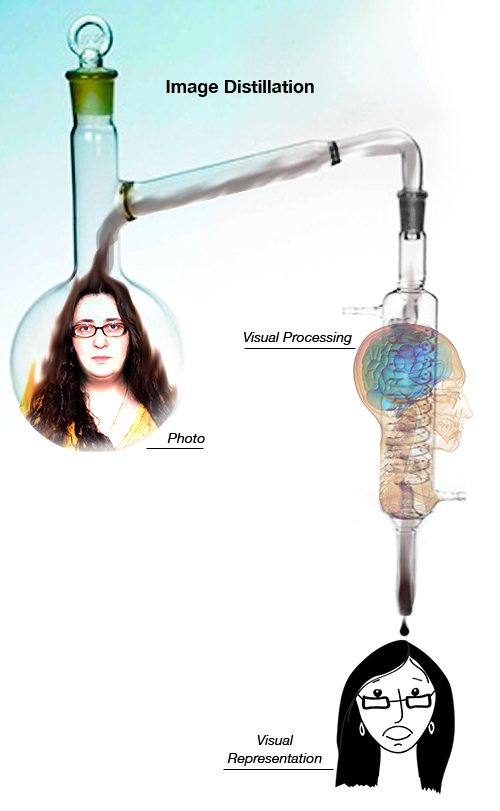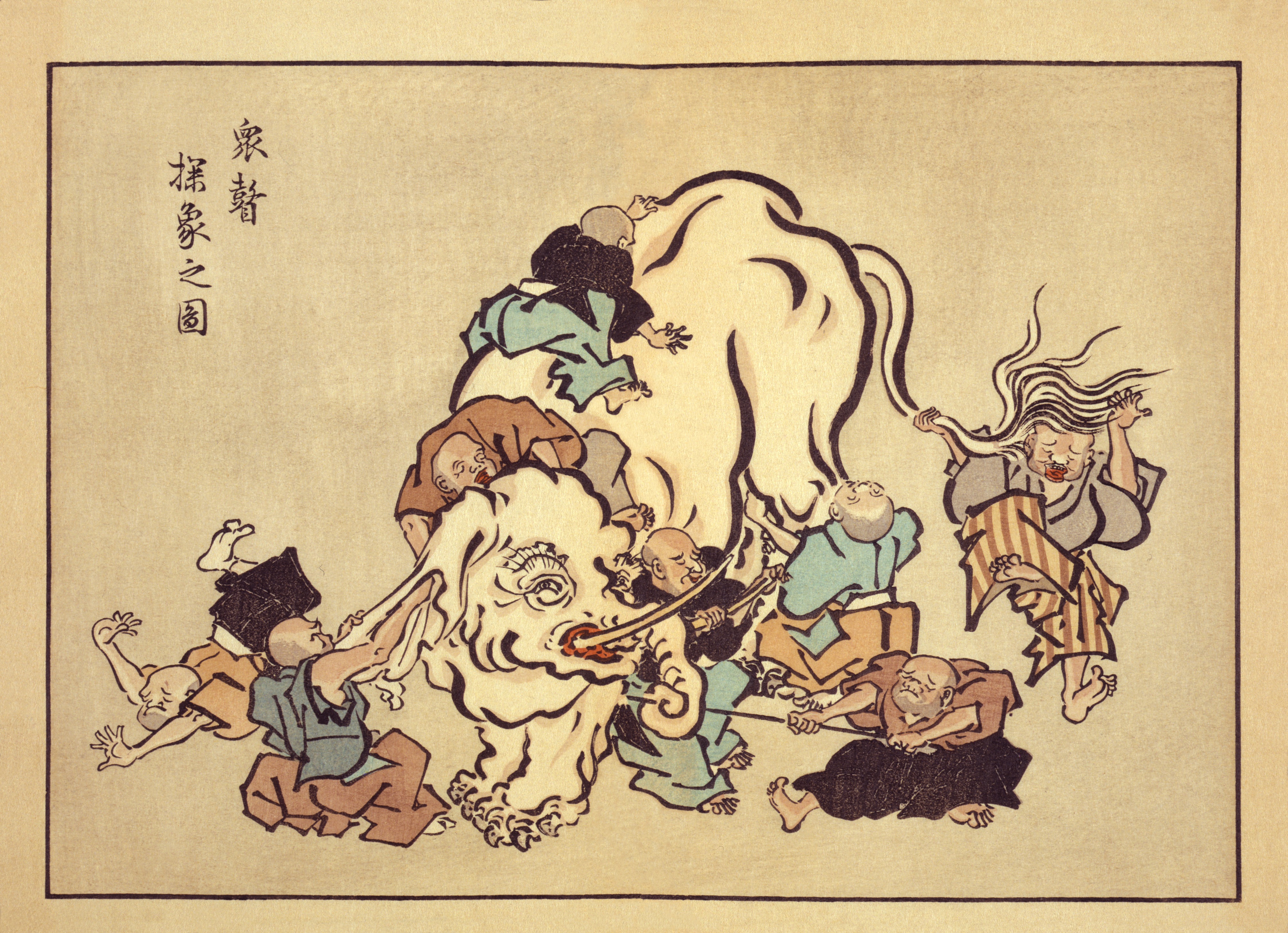Once a person publicly states his/her feelings, moving them from that position is very difficult.
Diagnostic Errors
Diagnostic Errors result from focusing on details and failing to recognize a large pattern.
Background Knowledge, Background Knowledge Errors, Cognitive Blindness, Contributor, Cultural Bias, Cultural Differences, Diagnostic Errors, Ethnographic & User Data, Interface Design, Mental Model Traps, Product Design Strategy, Users
A Curiously French Complaint
by Cecilia •
Kirby, E. (2008). “ A Curiously French Complaint,” BBC News. Retrieved on 2008/12/13. http://news.bbc.co.uk/go/pr/fr/-/2/hi/programmes/from_our_own_correspondent/7779126.stm Summary: This article focuses on the cultural differences between the French and British populations in regards to their medical care. Each culture has their own script of understanding, which people rely to set their expectations during a medical crisis. The author Emma experienced a cultural ‘shock’ during her first encounter with a French doctor due to her vastly different set of expectations. She visits a doctor in France due to the severity of a sore throat, where she is “diagnosed with a severe lung infection, mild asthma and had in my hand a prescription for six different types of medicine, an appointment at the local hospital’s radiology department and an emergency referral to a specialist in pulmonary disease (article).” Upon her return to Britain a few days later, she visits her family physician, who within a few minutes diagnoses her with only a ‘common cold.’ Her article then explains how the French expect a much more sever diagnosis to support their physical suffering. France is also the leading country of consumers who take prescription medications. While in England, there’s a more ‘keep a stiff upper lip’…
Background Knowledge, Background Knowledge Errors, Diagnostic Errors, Perception, Pipsqueak Articles, Users
Distilling Information
by Olga Werby •

When it comes to my students’ participation in this blog, it’s all about distilling information found in the news to something product designers in our midst would find useful, on a practical level. Consider the illustration below. We see a person’s face (mine in this case). We can describe some of the features. But what do we actually remember? Remembering complex visual information is hard—too many details. Recalling a drawing is easier. That’s because an artist already distilled the complexity into its essential parts—only those details that are required to remind us of a particular individual are included in the rendering. We are all pretty good at judging wether a portrait looks like the person it was intended to represent. We can quickly say if it does or if it doesn’t. But it would be difficult to explain what details in the illustration make the likeness or what’s missing from the drawing that didn’t hit its mark. Distillation of information is hard. Some people are good at it, some are not. It’s an acquired skill. And each category (e.g. sensory like visual, audio, tactile or knowledge-based like physics, economics, biology) requires its own training and its own set of talents.…
Anchoring Errors, Background Knowledge, Background Knowledge Errors, Diagnostic Errors, Mental Model Traps, Pipsqueak Articles
Working Memory Limitations vs. the Size of Problem
by Olga Werby •

The illustration above comes from Wikipedia, which has a complete entry on the Asian proverb about blind monks who examine an elephant and generate multiple hypotheses of what it could be. In product design speak, these monks are doing collaborative problem solving with a shared goal of identifying a mysterious object—the elephant. The monks, the story goes, all come from different backgrounds: an old tailor touching an elephant’s ear describes it as cloth; an aging gardner hugging the leg imagines a tree trunk; an elephant’s tusk is envisioned as a weapon by an arms master. Each monk brings his own life’s worth of experience to bear on the problem, but each has very limited access to the whole. It’s easy to see how this story can be used to explain the pains of collaborative and cooperative group projects in which individuals focus on product design. Each person brings their own expertise to the table, hopefully contributing positively to the whole process. But this story is also a good metaphor for understanding problem solving in context of our very limited working memory capacity. Unlike elementary school math problems that we all calculated, real world problems are messy and don’t come with…
Background Knowledge Errors, Causal Net Problems, Conceptual Design, Diagnostic Errors, Featured, Interaction Design, Interface Design, Pipsqueak Articles
The Anatomy of Failure
by Olga Werby •

On May 7th 2010, at around 2:30 p.m. Eastern Time, the stock market went on a wild ride, dropping over 900 points in matter of just minutes. What happened? There’s lot’s of speculation, and some know more then they are willing to say. But what’s clear is that there was just the right confluence of world events, human and computer errors, and system-wide communication breakdown that triggered a mass sell-off of stocks at fantastic prices. In other words, there was a catastrophic failure during product interaction. I’m not an investment analyst and have limited knowledge in this subject area, but I am interested in product failure. So Thursday’s stock market episode was very interesting. Here’s a little background on the events of that day broken down into steps leading to the failure. Step 1: When the New York stock market opened on Thursday, bad news was streaming in from Europe—there were fears that Greece would ultimately default on its loans; its people were staging massive demonstrations in Athens; Euro was going down. Step 2: In our very interconnected world, this kind of news makes investors skittish and the stock market was dropping value all morning. Step 3: At around 2:45…
Conceptual Design, Diagnostic Errors, Featured, Pipsqueak Articles, Users
More is Better: Why iPad doesn’t Satisfy Everyone
by Olga Werby •

There have been a lot of complaints flying around about how iPad doesn’t do this, and iPad can’t do that, and iPad won’t work with that other thing. Some people are so obsessed about all the things that iPad isn’t capable of doing that they overlook all that it can do. By looking for failure, these reviewers lost sight of what iPad is all about. There are plenty of people who are defending iPad out there, so I was interested in why the people who dislike iPad so passionately feel the way they do. We, the people, tend to make our decisions based on little snippets of information that we find to be true and productive for solving various problems. “If something is steaming, it must be hot.” “Big things fall harder and faster.” “Where there’s smoke, there’s fire.” “If one is good, two is even better.” “If it looks clean…” “Little kids don’t lie.” “If it’s natural, it’s not chemical.” “Summer is when the Earth is closest to the sun.” “One can’t get fat eating vegetables.” These are the building blocks of our intuitions. We are all walking encyclopedias of folksy wisdom—common sense explanations that are consciously and unconsciously…
